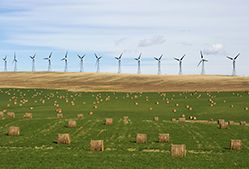BNP Paribas has struck an exclusive licensing agreement with Solactive to offer swaps, certificates and structured products on a new benchmark that provides exposure to the United Nations’ Sustainable Development Goals.
The Solactive Sustainable Development Goals World Index provides exposure to 50 companies that have been identified as making a significant contribution to the advancement of the UN’s sustainable development agenda. The set of 17 goals were adopted by UN member states in late 2015 as part of a global effort to end poverty, tackle climate change and promote equality.
“We have built a full range of products toward the climate change thematic and this index gives investors an opportunity to follow the UN’s global sustainability framework,” said Neven Graillat, head of sustainable investment solutions at BNP Paribas, which has licensed or launched 12 ethical indices since 2012. ”It’s a very ambitious programme that makes all countries responsible for achieving those goals.”
Eligibility for index inclusion is based on the Vigeo Eiris Equitics methodology that maps SDGs against companies’ products, services and behaviours. Companies are rated according to their social and environmental impact and their business practices.
Further filters exclude companies on the basis of their carbon footprint and eliminate those with major involvement in activities such as nuclear energy, tobacco or firearms. Companies involved in major controversies such as human rights violations are also excluded and can be immediately removed following any scandal, rather than waiting for the annual rebalancing.
“The index recognises the products that companies are making to change the world, and the ethics of their business leaders,” said Graillat.
The latest index combines the environmental, social and governance thematic with smart beta filters, bringing together two major global investment trends. In addition to diversification filters that limit each sector to a maximum of 12 stocks and each region to a maximum of 25, the index provider applies a low volatility filter to remove the most volatile stocks. That helps to promote more stable performance for the primarily long-term investors that dominate ESG products.
“The volatility feature is very interesting for investors that are a bit more risk averse,” said Henning Kahre, head of research at Solactive. “ESG, smart beta and thematic indices have been the three main trends in global investing and we’re seeing a real trend towards combining them.”
Constituents are equally weighted. Healthcare and Industrial sectors currently dominate the index, with each accounting for almost a quarter as the methodology recognises development of sustainable products such as renewable energy or essential medicines. Constituents from those sectors include Amgen, Novartis, ABB and Philips, while Yahoo, SAP and Unilever also feature.
Ethical investing is gaining traction among institutional investors. BNP Paribas has gathered €3bn of assets in its ESG platform over the last two years, including over €800m over the last six months.
The bank also expects increased demand for structured products from retail investors based on its growing range of ESG indices. Issuance of retail notes linked to the benchmarks has been hampered by the low rate environment, which makes it difficult to structure a capital protected noted. However, some are extending the maturity of their investments out to nine or 10 years or putting around 5% of the investment at risk.
“Financial markets must support commercial innovations to deliver on the SDGs, and we believe that investors and corporations have a major role to play,” said Graillat.
